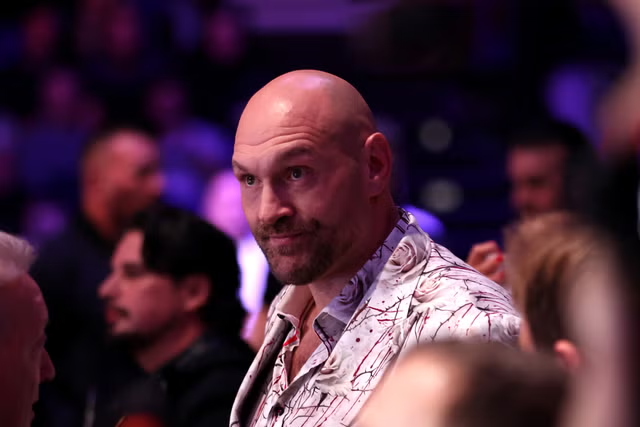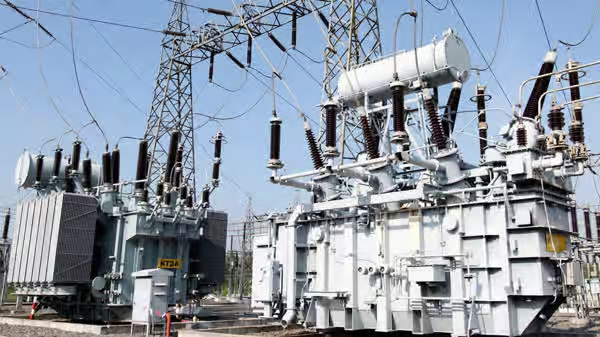President Bola Tinubu has approved the appointment of Mr. Rotimi Oyedepo (SAN) as Director of Public Prosecutions in the Federal Ministry of Justice, following his transfer from the Economic and Financial Crimes Commission to the mainstream Federal Civil Service.
The approval was communicated in a letter dated December 23 and signed by Omolabake Mafe on behalf of the Chairman of the Federal Civil Service Commission, and the development was announced on Tuesday by the State House Director of Information and Public Relations, Abiodun Oladunjoye.
“Mr. Oyedepo’s appointment was made in the public interest,” the letter stated.
At 42, Oyedepo will assume the role left vacant by the retirement of Mr. Abubakar Babadoko, who completes his mandatory eight-year tenure as a director on December 31, 2025.
The Presidency said Oyedepo played a pivotal role as part of the Federal Government’s legal team in the landmark Process and Industrial Developments Limited versus Federal Republic of Nigeria case, widely known as the P&ID case, which resulted in Nigeria’s decisive victory at the London High Court in October 2023.
In a judgment delivered on October 23, 2023, Justice Robin Knowles of the English High Court overturned an $11bn arbitral award that P&ID had secured against Nigeria through fraud, bribery, and perjury.
The arbitral award, initially valued at $6.6bn when issued in January 2017, had risen to more than $11bn by 2023 due to accumulated interest, an amount equivalent to almost one-third of Nigeria’s annual budget at the time.
Justice Knowles ruled that P&ID obtained the award through “severe abuses of the arbitral process,” including the bribery of Nigerian officials, the presentation of false evidence, and the improper acquisition and retention of privileged Nigerian government documents by P&ID’s lawyers.
“The awards were obtained by fraud,” Justice Knowles declared, adding that “the Arbitration was a shell that got nowhere near the truth.”
The judge also condemned the conduct of P&ID’s lawyers in handling privileged materials as “indefensible,” noting that they stood to earn “life-changing sums of money”, estimated at up to £3bn for the solicitor and as much as £850m for the King’s Counsel, had the claim succeeded.
Nigeria’s legal team, which included Oyedepo, successfully argued that enforcing the award would violate public policy, leading the High Court to refuse enforcement and ultimately nullify the entire award.
The Tinubu administration said the outcome of the case spared Nigeria from a potentially crippling financial burden that could have severely constrained government spending on education, healthcare, and infrastructure for many years.
Before his appointment, Oyedepo spent more than 15 years at the EFCC, where he specialised in prosecuting complex economic and financial crimes.
He also served as Head of the Monitoring Unit at the anti-graft agency, earning a reputation as one of the country’s most effective prosecutors of financial crimes.
In recognition of his contributions, Oyedepo was named EFCC Outstanding Staff of the Year in 2014 and Best Financial Crimes Prosecutor in 2019.
His prosecutorial record includes high-profile corruption cases involving former Central Bank Governor Godwin Emefiele, former Attorney General of the Federation Mohammed Adoke, and several other public officials and corporate executives accused of economic sabotage.
Oyedepo graduated with a law degree from the University of Ilorin in 2007 and attended the Nigerian Law School in 2008, where he was called to the Nigerian Bar.
He was conferred with the rank of Senior Advocate of Nigeria in 2022.
According to the Presidency, Oyedepo is expected to “deploy his expertise to reduce reliance on external counsel for critical prosecutions and to ensure greater coherence and consistency in the Federal Government’s legal strategies.”
The Director of Public Prosecutions serves as the chief law officer in charge of public prosecutions in Nigeria and operates directly under the Attorney-General of the Federation.
The role entails oversight of all criminal prosecutions initiated by the Federal Government, the provision of legal advice on prosecutorial matters, and the promotion of uniform application of criminal law across federal jurisdictions.
The DPP also represents the Federal Government in criminal appeals before the Court of Appeal and the Supreme Court, coordinates with state Directors of Public Prosecution on interstate criminal matters, and advises on international criminal cooperation.





















